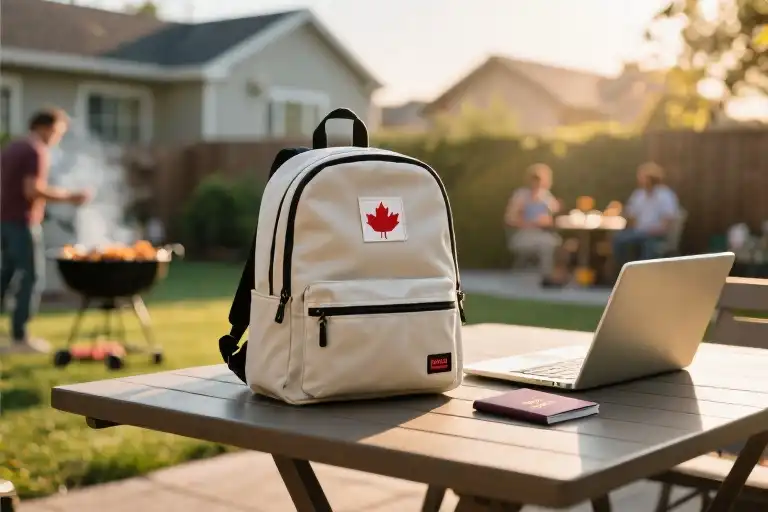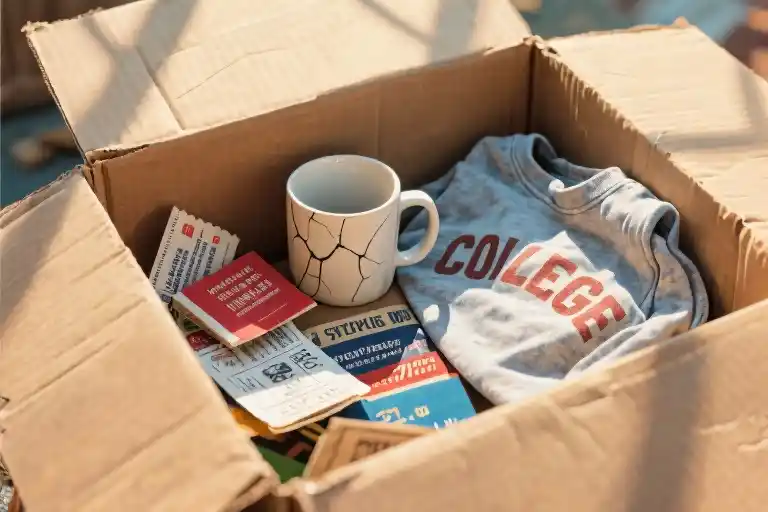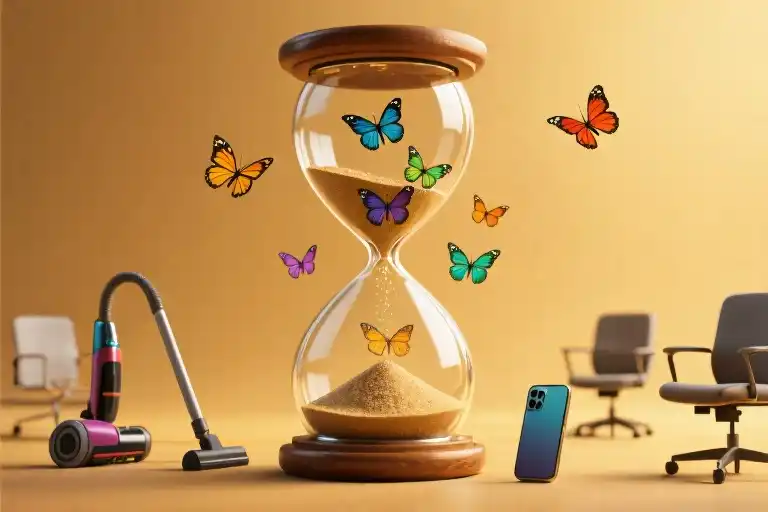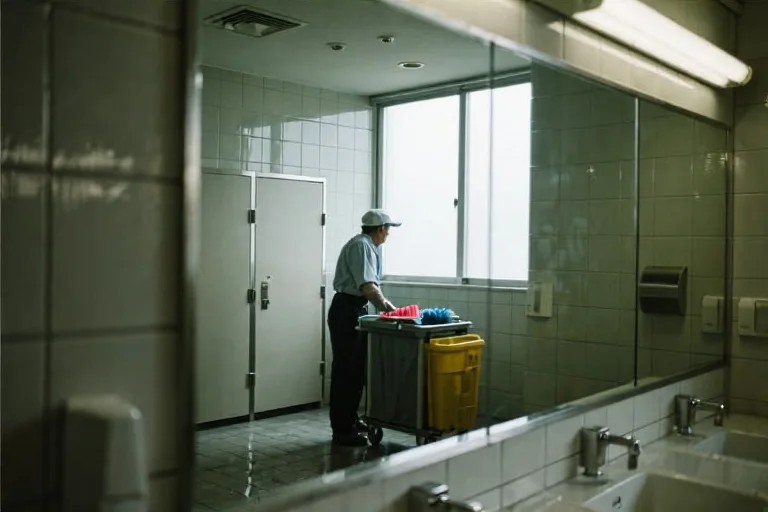The wine glass trembled slightly in my hand as my cousin’s wife leaned across the patio table, her voice dripping with that particular brand of Canadian concern we’ve come to know so well. “But where do you really live?” she asked, eyebrows arched high enough to disappear under her bangs. Around us, the familiar hum of a suburban backyard BBQ continued – sizzling burgers, kids chasing each other through sprinklers, the occasional burst of laughter. Yet in that moment, I might as well have announced we’d joined a circus.
This scene repeats every time we return to Canada, our passports stamped with visas from a dozen countries but our lifestyle still requiring translation for hometown audiences. People assume the greatest challenges of our nomadic existence involve logistics or finances – navigating foreign healthcare systems, calculating time zone differences for work calls, or budgeting across fluctuating currencies. While those are real considerations, they’re not what keeps us awake at night. The true obstacle no one warns you about when selling your possessions to travel the world? The weight of other people’s expectations.
Since 2017, my partner and I (now 46 and 48 respectively) have lived out of backpacks, trading mortgage payments for monthly Airbnb rentals from Lisbon to Chiang Mai. What began as an experiment in minimalism became a revelation – discovering how little we actually needed to be happy. Yet back in Canada, where home ownership remains the ultimate marker of adult success (67% of Canadians own homes according to latest statistics), our choice to live differently often feels like a personal affront to the life script so many follow unquestioningly.
“You’ll want to settle down eventually,” a former colleague insisted last winter, as if our global adventures were merely delayed adolescence rather than conscious design. “Aren’t you worried about… stability?” my dentist asked during a check-up, the word ‘stability’ heavy with unspoken assumptions about 401(k)s and lawn care. Even well-meaning friends pepper conversations with comments about us “getting it out of our system,” as if freedom were a phase rather than a philosophy.
These interactions reveal something fascinating about digital nomadism in developed nations: the barriers aren’t primarily geographical or financial, but cultural. In Southeast Asia, we’re just two among thousands of location-independent workers. But in Canadian suburbs, we become walking Rorschach tests – people project onto us their own fears about unconventional choices. The subtext is always the same: At your age, shouldn’t you be…? Fill in the blank with whatever milestone we’re supposedly missing.
What surprises me most isn’t the skepticism itself, but how personal it feels. Complete strangers in Vietnam don’t question our life decisions, yet people who’ve known us for decades suddenly become amateur life coaches when we’re back on home soil. There’s an irony to this – Canada prides itself on multicultural tolerance, yet demonstrates remarkable monocultural thinking when it comes to lifestyle diversity among its own citizens.
The judgment often masquerades as concern. “It’s not safe,” they’ll say about countries they’ve never visited. “What about when you’re older?” as if we haven’t considered healthcare needs (we have – extensively). The comments reveal more about the speakers than about our actual circumstances: their own anxieties about aging, their unconscious equations of possessions with security, their quiet doubts about whether they could survive outside familiar systems.
Yet here’s what they don’t see: the morning we woke to pink-tinged Himalayan peaks outside our Nepal guesthouse window. The afternoon we worked from a Barcelona café, alternating between spreadsheets and people-watching. The evening we traded travel stories with new friends in a Mexico City co-living space, realizing how much richer our social fabric had become since leaving our echo chamber. These moments form the counterbalance to every skeptical comment – proof that what we’ve gained far outweighs what we’ve given up.
This tension between societal expectations and personal fulfillment isn’t unique to nomads, of course. Anyone who’s chosen a road less traveled – whether it’s childlessness by choice, career pivots in midlife, or rejecting consumerist norms – recognizes these conversations. But there’s something particularly revealing about how nomadic lifestyles unsettle people in developed nations. Our existence becomes a living Rorschach test for others’ unexamined assumptions about success, security, and what constitutes a “proper” adult life.
As the BBQ continued around us that evening, I watched my cousin’s wife sip her wine, waiting for my answer about where we “really” live. I could have quoted statistics about the rising global nomad population, or explained our carefully crafted healthcare strategy. Instead, I simply smiled and said, “Wherever we want.” The silence that followed spoke volumes about the real journey ahead – not across borders, but across the uncharted territory of others’ expectations.
The Canadian Paradox: Why Home Feels Least Like Home
You’d think returning to Canada after years of nomadic living would feel like a warm embrace. Instead, we’re often met with raised eyebrows and loaded questions at family gatherings. The irony? In developing countries where we barely speak the language, our lifestyle receives more understanding than in our own hometown.
Homeownership as Social Currency
In a nation where 67% own their homes (StatsCan, 2023), property isn’t just shelter—it’s a badge of adulthood. We’ve memorized the script:
“When are you buying again?” (Translation: When will you become responsible?)
“Must be nice not having equity.” (Translation: Your freedom looks suspicious.)
This housing-as-identity phenomenon creates invisible pressure. During our last visit, a former colleague actually patted my shoulder saying, “Don’t worry, there’s still time to settle down”—as if my passport-stamped life needed fixing.
The Two Flavors of Judgment
1. The Concerned: Usually relatives armed with healthcare statistics. Their favorite line: “What if you get sick somewhere with…” (Insert dramatic pause) “…socialized medicine?” (Never mind that Canada’s healthcare covers citizens abroad for limited periods).
2. The Dismissive: Former coworkers who frame our choices as prolonged adolescence. Classic line: “We did the backpack thing too—in our twenties.” The subtext? Midlife nomads violate some unwritten expiration date on adventure.
Global Acceptance Gap
| Location | Common Reaction | Underlying Value |
|---|---|---|
| Bali | “Cool! How do visas work?” | Flexibility |
| Portugal | “Many digital nomads here” | Community |
| Small-town Canada | “But where’s your real home?” | Stability |
This cultural disconnect became painfully clear when our Lisbon Airbnb host—a 60-year-old former banker—cheered our lifestyle, while our Canadian accountant still asks annually if we’re “ready to reintegrate.”
The Freedom Tax
What few discuss: Nomads don’t escape pressure, we just exchange mortgage stress for social scrutiny. But here’s the secret—after seven years, we’ve developed immunity to sideways comments. When Aunt Carol sighs, “You’ll understand when you’re older,” we just smile. At 48, I am older. And I understand this: judgment speaks more about the speaker’s fears than the listener’s choices.
Next: We’ll break down exactly what we sold (and gained) when liquidating our Canadian life—including the lawnmower that apparently symbolized adulthood.
The Freedom Equation: What We Gained by Letting Go
The Great Unburdening: Our Possessions Breakdown
The moment we decided to become digital nomads in our 40s, we faced the physical manifestation of societal expectations: a 2,300-square-foot house packed with belongings we’d accumulated over two decades. Here’s what our property liquidation looked like:
Big-Ticket Items:
- The Suburban Dream: Sold our 4-bedroom home (market value: $620K)
- Status Symbols: Auctioned two cars (2016 SUV and 2018 sedan)
- Storage Unit: Cleared 10x15ft space holding holiday decorations and ‘someday’ furniture
The Emotional Heavyweights:
- Family heirlooms (distributed to relatives)
- My grandfather’s fishing gear (donated to youth program)
- 14 photo albums (digitized over 3 months)
What surprised us wasn’t the financial return (about 78% of assessed value after fees), but the psychological weight lifted. Each item released created space for new experiences – quite literally, as our worldly possessions now fit into two 40L backpacks and a storage-drive.
Net Worth Beyond Numbers
Three years into nomadic living, our balance sheet tells an unconventional story:
Traditional Metrics (Down):
- Physical assets: ↓ 92%
- Local social capital: ↓ 60% (fewer hometown connections)
- ‘Stability points’: According to Canadian standards, apparently zero
New Value Indicators (Up):
- Liquid assets: ↑ 35% (no property taxes/maintenance)
- Global network: ↑ 300% (contacts across 22 countries)
- Adaptability skills: Priceless (learned to navigate healthcare in 7 languages)
The biggest shift? Measuring wealth in sunrises witnessed rather than square footage owned. Our current ‘portfolio’ includes:
- 14 months of Mediterranean coastal living
- 8 weeks in Japanese onsens
- 3 spontaneous road trips across Patagonia
When Reality Tested Our Choices: The Portugal Hospital Incident
Critics love predicting medical emergencies as our lifestyle’s downfall. Then came my appendectomy in Lisbon:
The Night That Validated Our System:
- 2AM: Admitted to Hospital da Luz through travel insurance portal
- 6AM: Surgery completed by English-speaking surgeon
- Noon: Recovering in private room with sea view
- Total cost: $237 after insurance (compared to $18K estimated in Canada)
This became our ultimate counterargument. Our globally dispersed lifestyle provided better healthcare access than being tied to one overburdened system. We now maintain:
- International health insurance ($287/month for both)
- Medical evacuation coverage
- Digital health records in 4 languages
The Tradeoff Transparency
For those considering this path, here’s our unfiltered assessment:
You’ll Miss:
- Spontaneous weekend invites from local friends
- That perfect reading nook you spent years curating
- The convenience of ‘knowing how things work’
You’ll Gain:
- The ability to relocate when political climates shift
- Friends who welcome you in 12 time zones
- Daily practice in resourcefulness (the ultimate life skill)
Our advice? Create your own valuation matrix. What’s your ‘freedom currency’ – time flexibility? Cultural immersion? Personal growth? Measure success by those metrics, not someone else’s yardstick.
“They see empty hands – we see open arms ready to embrace whatever comes next.”
The Art of Handling Judgment: From Defense to Empowerment
Let’s address the elephant in the room first. That moment when you’re at a family gathering, holding a plate of potato salad, and Uncle Bob drops the inevitable: “So when are you going to settle down like normal people?” The silence that follows could drown out a Canadian winter storm.
Scripting Your Responses: Practical Templates for Real-Life Situations
1. The Family BBQ Ambush
Typical comment: “Aren’t you too old for this backpacker lifestyle?”
Try: “Funny how at 25 they said I was too young, and at 45 I’m suddenly too old. Maybe there’s just no perfect age for happiness?” (Smile. Sip your drink.)
2. The Bank Manager’s Concern
Typical comment: “This nomadic thing seems so… unstable for someone your age.”
Try: “Actually, maintaining multiple income streams across borders has made me more financially resilient than most traditional careers. Did you know 63% of digital nomads report higher savings rates?”
3. The High School Reunion Gauntlet
Typical comment: “Must be nice not having real responsibilities!”
Try: “You’re right – being solely responsible for my healthcare, taxes in three countries, and creating work opportunities globally is much easier than remembering to pay a mortgage. Wait…” (Cue good-natured laughter)
Rewiring Your Mental Framework: 3 Cognitive Shifts That Help
- The Perspective Flip
When someone says “You’ll regret this,” mentally translate it to “I’m scared I might regret not trying something like this.” Most judgment stems from others’ unspoken fears, not your reality. - The Ageism Antidote
Create a “role models” file showcasing people thriving in nomadic lifestyles after 40. From travel bloggers like Nomadic Matt to tech entrepreneurs running companies from Bali – reference them when doubts creep in. - The Abundance Mindset
Traditionalists often view life as a zero-sum game: stability OR adventure. Practice articulating how your choices create “and” solutions: “I have professional fulfillment AND geographical freedom.”
Turning Criticism Into Conversation Starters
Last summer, during a particularly tense dinner, my cousin remarked: “People who travel this much are just running from something.” Instead of getting defensive, I asked: “What do you think I might be running from?” This flipped the script, making her articulate her assumptions. Her eventual answer (“commitment issues”) led to a genuine discussion about how modern commitments look different than our parents’ generation.
Remember: The goal isn’t to “win” these exchanges but to plant seeds of reconsideration. Most people aren’t malicious – they’re working with outdated life scripts. Your calm, happy existence is the most powerful rebuttal.
Pro Tip: Keep a notes file of your best comebacks and reflections. What worked? What didn’t? Refine your approach like you would any other skill.
When All Else Fails: The Power of “So What?”
After six years of nomadic living, my ultimate mental armor is this simple question: If their worst-case scenario came true – if I did “fail” at this lifestyle – so what? I’d still have:
- Skills most companies desperately need (adaptability, cross-cultural communication)
- Memories spanning six continents
- Proof I had the courage to design my own life
That hypothetical “failure” sounds better than many people’s success metrics. Hold that truth close when judgments feel heavy.
Next Steps:
Which of these scenarios resonates most? The comments section is open for your most creative (or infuriating) judgment stories – let’s crowdsource some brilliant responses together. For those wanting deeper strategies, I’ll be hosting a free workshop next month on “Building Your Nomadic Confidence Toolkit” (link in bio).*
Reclaiming Your Narrative: Why Nomadic Freedom is the Ultimate Declaration of Selfhood
That moment when you’re sipping coffee in a Lisbon café while your former colleague complains about shoveling snow back home? Priceless. But the real victory isn’t the geographic freedom—it’s the psychological sovereignty we’ve claimed by designing life on our terms.
Your Turn: Share the Most Absurd Criticism You’ve Faced
We’ve collected our favorite “concerned” comments over six years (special trophy goes to “But who will water your plants when you’re dead?”). Now we want to hear yours:
- “Aren’t you worried your cats will forget you?” (Actual question from my dentist)
- “People will think you’re running from the law” (Neighbor, 2018)
- “It’s selfish to not contribute to local property taxes” (Tax accountant, profoundly confused)
Drop your most outrageous comment below—we’re compiling a “Hall of Shame” to remind ourselves how creative societal expectations can be.
The Nomad’s Survival Toolkit: Practical Resources for Seasoned Travelers
After helping 127 midlife nomads transition successfully, these are the battle-tested resources we recommend:
1. Health Coverage That Actually Works
- SafetyWing (Nomad-specific insurance covering COVID and adventure sports)
- IMG Global (For pre-existing condition coverage)
2. Remote Work Infrastructure
- RemoteYear (Curated coworking spaces worldwide)
- Workfrom (Café WiFi speed ratings)
3. Tax Navigation
- Nomad Tax (Specialists in multi-country filings)
- Canadian Snowbird Association (Cross-border tax loopholes)
Pro Tip: Bookmark our constantly updated resource hub with exclusive discounts for readers over 40.
The Unspoken Truth About Roots and Wings
They told us we were “unrooting” ourselves. What we actually did was trade a single taproot for a thousand fibrous connections spanning continents. Our community isn’t defined by proximity anymore—it’s the Portuguese surfer who forwards job leads, the Bali-based accountant who explains tax codes over coconut coffee, the Montreal book club that now meets on Zoom rooftops from Marrakech to Melbourne.
This isn’t running away. It’s running toward the most vibrant version of adulthood we could imagine—one where responsibility means responding to our deepest truths rather than societal scripts. The wrinkles around our eyes? They’re from squinting at sunsets on three continents, not from worrying about mortgage rates.
Final Challenge: Next time someone asks “When are you coming home?” try answering: “I am home—it just moves with me.” Then watch their expression. (Send us the photo.)





